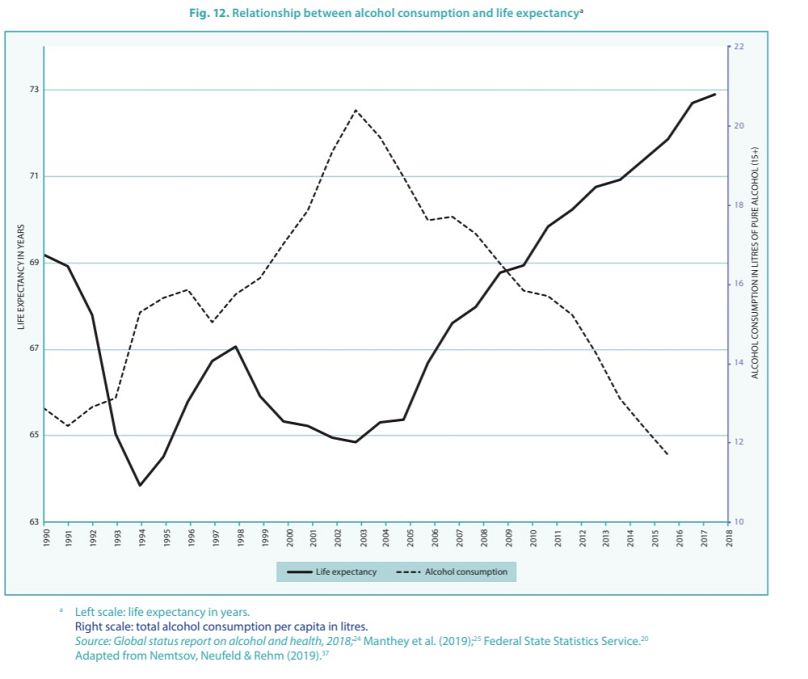A new report from the World Health Organisation has found a correlation between decreasing alcohol consumption in Russia and lengthier life expectancies.
Russians are drinking less alcohol than two decades ago, boosting the life expectancy of the population as a whole, a new report has said.
According to the World Health Organisation (WHO), alcohol consumption in Russia has been steadily declining since 2003, when a number of control measures such as higher taxes and minimum unit prices were put in place.
There was also a drop in deaths from all causes during the same period from 2003, but with a particularly sharp decline in deaths from alcohol consumption.
Mortality from all causes fell by 39% for men and 36% for women.
It has led to Russia reaching its historic high life expectancy of 68 years for men and 78 years for women.
Carina Ferreira-Borges, the programme manager for alcohol and illicit drugs at WHO-Europe, said she hoped Russia's example would prompt other countries in Europe to follow suit with stricter regulations on alcohol.
"The dramatic decline in consumption of homemade, smuggled or illegally produced alcohol in the Russian Federation is attributable to the government’s adoption of evidence-based alcohol control policies," she said.
"These results show that measures such as the introduction of monitoring systems, price increases and limited alcohol availability work to save lives and health system costs.
"I trust that other countries in Europe will adopt similar policies to protect people’s health."
The report says the reduction in alcohol consumption could also bring other social benefits.
Dr Bente Mikkelsen, director of the division of non-communicable diseases at the WHO Europe, said it could also "reduce the burden" of non-communicable disease.
It could help achieve the aim of reducing premature deaths from non-communicable diseases by 33% by 2030," he said.












